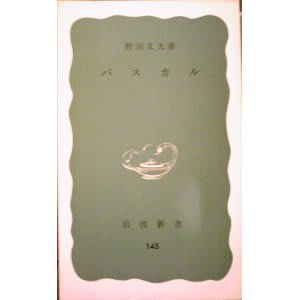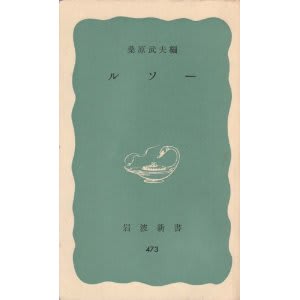Bertrand Arthur William Russell, 3rd Earl Russell, OM, FRS (18 May 1872 ? 2 February 1970) was a British nobleman, philosopher, logician, mathematician, historian, and social critic. At various points in his life he considered himself a liberal, a socialist, and a pacifist, but he also admitted that he had never been any of these in any profound sense. He was born in Monmouthshire, into one of the most prominent aristocratic families in Britain.
Karl Theodor Jaspers (23 February 1883 ? 26 February 1969) was a German psychiatrist and philosopher who had a strong influence on modern theology, psychiatry and philosophy. After being trained in and practicing psychiatry, Jaspers turned to philosophical inquiry and attempted to discover an innovative philosophical system. He was often viewed as a major exponent of existentialism in Germany, though he did not accept this label.
梅原 猛(1925年3月20日 - )は、日本の哲学者。ものつくり大学総長(初代)、京都市立芸術大学名誉教授、国際日本文化研究センター名誉教授。東日本大震災復興構想会議特別顧問(名誉議長)。碧南市哲学たいけん村無我苑名誉村長。
立命館大学文学部教授、京都市立芸術大学学長、国際日本文化研究センター所長(初代)、社団法人日本ペンクラブ会長(第13代)などを歴任した。
日本には「草木国土悉皆成仏」という偉大な思想がある――。原発事故という文明災を経て、私たちは何を自省すべきか。デカルト、カント、ニーチェらを俎上に近代合理主義が見落としてきたもの、人間中心主義が忘れてきたものを検証し、持続可能な未来への新たな可能性を日本の歴史のなかに見出す。ここに、新たな「人類哲学」が誕生する。
1.大衆の考えを尊重するのではなく、むしろ、正確な知識に基づいて事柄を判断することのできる人々の考えだけを尊重する。
2.魂は身体よりも高い価値を持つ。
3.身体的な生が一番大切なものではない。一番大切なのは、道徳的によき生を生きることである。
4.善と美と正とは同一のものである。
5.人は決して不正を行ってはならない、いかなる点においても。
6.また、たとい人から不正な目にあわされても、不正の仕返しはしてはならない。
Socrates (/?s?kr?ti?z/; Greek: Σωκράτης, Ancient Greek pronunciation: [s??krát??s], Sōkrátēs; c. 469 BC ? 399 BC) was a classical Greek (Athenian) philosopher. Credited as one of the founders of Western philosophy, he is an enigmatic figure known chiefly through the accounts of later classical writers, especially the writings of his students Plato and Xenophon and the plays of his contemporary Aristophanes. Many would claim that Plato's dialogues are the most comprehensive accounts of Socrates to survive from antiquity.
Through his portrayal in Plato's dialogues, Socrates has become renowned for his contribution to the field of ethics, and it is this Platonic Socrates who lends his name to the concepts of Socratic irony and the Socratic method, or elenchus. The latter remains a commonly used tool in a wide range of discussions, and is a type of pedagogy in which a series of questions is asked not only to draw individual answers, but also to encourage fundamental insight into the issue at hand. Plato's Socrates also made important and lasting contributions to the field of epistemology, and the influence of his ideas and approach remains a strong foundation for much western philosophy that followed.
Plato (/?ple?to?/; Greek: Πλάτων, Plátōn, "broad"; 428/427 or 424/423 BC ? 348/347 BC) was a philosopher in Classical Greece. He was also a mathematician, student of Socrates, writer of philosophical dialogues, and founder of the Academy in Athens, the first institution of higher learning in the Western world. Along with his mentor, Socrates, and his student, Aristotle, Plato helped to lay the foundations of Western philosophy and science.
Plato's sophistication as a writer is evident in his Socratic dialogues; thirty-six dialogues and thirteen letters have been ascribed to him. Plato's writings have been published in several fashions; this has led to several conventions regarding the naming and referencing of Plato's texts. Plato's dialogues have been used to teach a range of subjects, including philosophy, logic, ethics, rhetoric, religion and mathematics. Plato is one of the most important founding figures in Western philosophy.
Blaise Pascal (French: [bl?z paskal]; 19 June 1623 ? 19 August 1662) was a French mathematician, physicist, inventor, writer and Christian philosopher. He was a child prodigy who was educated by his father, a tax collector in Rouen. Pascal's earliest work was in the natural and applied sciences where he made important contributions to the study of fluids, and clarified the concepts of pressure and vacuum by generalizing the work of Evangelista Torricelli. Pascal also wrote in defense of the scientific method.
In 1642, while still a teenager, he started some pioneering work on calculating machines. After three years of effort and fifty prototypes, he invented the mechanical calculator. He built 20 of these machines (called Pascal's calculators and later Pascalines) in the following ten years. Pascal was an important mathematician, helping create two major new areas of research: he wrote a significant treatise on the subject of projective geometry at the age of 16, and later corresponded with Pierre de Fermat on probability theory, strongly influencing the development of modern economics and social science. Following Galileo and Torricelli, in 1646 he refuted Aristotle's
Jean-Jacques Rousseau (French: [????ak ?uso]; 28 June 1712 ? 2 July 1778) was a Genevan philosopher, writer, and composer of the 18th-century. His political philosophy influenced the French Revolution as well as the overall development of modern political, sociological, and educational thought. He argued that private property was the start of civilization, inequality, murders and wars.
Rousseau's novel Émile, or On Education is a treatise on the education of the whole person for citizenship. His sentimental novel Julie, or the New Heloise was of importance to the development of pre-romanticism and romanticism in fiction. Rousseau's autobiographical writings?his Confessions, which initiated the modern autobiography, and his Reveries of a Solitary Walker?exemplified the late 18th-century movement known as the Age of Sensibility, and featured an increased focus on subjectivity and introspection that later characterized modern writing. His Discourse on the Origin of Inequality and his On the Social Contract are cornerstones in modern political and social thought.
Rousseau was a successful composer of music, who wrote seven operas as well as music in other forms, and made contributions to music as a theorist. During the period of the French Revolution, Rousseau was the most popular of the philosophes among members of the Jacobin Club. Rousseau was interred as a national hero in the Panthéon in Paris, in 1794, 16 years after his death.



























